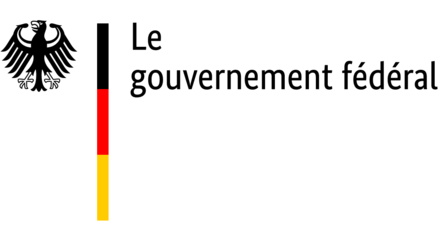
International skilled professionals in companies benefit both sides
17 April 2018 - There are some sectors in regions in Germany where a lack of qualified professionals is already making itself felt. This skills gap is expected to widen as the population of Germany continues to age. We are now at a stage where a lack of qualified labour is the biggest commercial risk faced by our companies. Four in five are already finding it difficult to recruit the qualified professionals they need1.But every German company can use its human resources policy to actively tackle this issue and tap into new sources of skilled workers. Among these are qualified professionals from abroad. It is often worthwhile for companies to attract such people, because they do more than simply fill a vacancy. Every company will benefit from having international teams. Qualified immigrants have in-depth knowledge of foreign markets and countries, they are bilingual or multilingual, and they often have very strong intercultural skills.
International skilled professionals in companies - recent developments
In response to the widening skills gap, German companies have started a new trend. They are increasingly recruiting qualified professionals from abroad. At the end of 2016, there were some 3.2 million non-Germans employed in jobs subject to social security contributions in Germany, according to the Federal Employment Agency2. A strong increase in the numbers of Indian, Chinese, and Spanish employees, in particular, was observed in STEM professions requiring higher education. These professions (in science, technology, engineering, and mathematics) are particularly affected by a lack of skilled professionals3. The impact of this skills gap would be far worse if it were not for these international qualified professionals. German SMEs are also among the companies benefitting from skilled immigrants. A recent survey showed that small and medium-sized companies (SMEs) are increasingly employing staff from abroad4. In fact, three in four SMEs hired non-German workers in 2016. The larger the workforce, the more likely that there is at least one immigrant among them. This particularly applies to SMEs that do business abroad and are seeking to expand to international markets, a move for which they rely on the inside knowledge and networks of foreign skilled professionals. Almost all SMEs of the larger category (with a workforce of 50 or more staff) employ workers from abroad. Among these, 56% per cent are from the EU.
Harnessing the benefits of diversity in companies
Companies that decide to recruit qualified professionals from abroad are well advised to also foster integration and a culture of welcome among their workforce. Only if the foreign qualified professional is able to settle in well into their new professional and private life and finds their place in society will the company be able to retain them. Whilst establishing a culture of welcome may well require a certain amount of effort, it can have manifold benefits, especially when implemented as part of a larger diversity management scheme. In a survey conducted by the Diversity Charter5, approx. three in four of the companies surveyed agreed with the statement that diversity is a way of securing their own future. This is because diversity can be a way of using human resources more effectively and promoting innovation and creativity within the company. A successful diversity management scheme helps companies acquire a reputation as a cosmopolitan and attractive employer. The Centre of Excellence on Skilled Labour (KOFA)6 provides SMEs with practical advice on how they can foster diversity in their company.
Mastering the challenges involved in recruiting international skilled professionals
Recruiting and integrating international skilled professionals can take a great deal of money, time and effort and therefore presents new challenges for German SMEs. Companies often find themselves confronted with a large number of administrative questions:
- Where can I look for and reach out to foreign applicants?
- What rules and regulations do I need to comply with when hiring people that do not hold a German passport?
- How can I ascertain the quality of foreign qualifications?
- What can I do to help my new recruit improve their German-language skills?
- What can I do to facilitate their integration, who can support me in this and how?
- Who can I contact for support?
You can find answers to these and other questions at Make in Germany – For businesses. This official website is divided into four main sections providing employers with all the information they need to be able to recruit qualified professions from abroad and help them integrate. The information covers the different ways of recruitment that are open to companies hiring labour from the EU and from non-EU countries and also different target groups, something that is extremely important. For instance, company can benefit greatly from hiring students and recent graduates of German universities and higher education institutes.
If you are an employer looking for additional information and support, please go to Make it in Germany – For businesses.
Sources and notes:
[1] Economic survey conducted by the Association of German Chambers of Industry and Commerce (DIHK) at the beginning of 2018
[2] Federal Employment Agency: Labour market for foreigners – monthly figures, December 2017
[3] Cologne Institute for Economic Research (IW Köln): Mint-Herbstreport, November 2017
[4] KFW Research: Professionals from abroad in the SME sector: Ein starkes Plädoyer für freie Arbeitsmärkte, January 2017
[5] Diversity Charter: Diversity in Germany, October 2016
[6] The Centre of Excellence on Skilled Labour (KOFA) receives funding from the Federal Ministry for Economic Affairs and Energy. It helps SMEs close the skills gap and adopt a successful strategy for managing human resources. An overview of the support services provided by KOFA can be found at www.kofa.de. In addition to this, KOFA organises events, presentations and webinars surrounding a wide range of human resources-related issues.
Do you have any questions?
Let us advise you on your opportunities to work and live in Germany. Our experts will support you with questions regarding job search, visa, recognition and learning German.
You can find out more about the various contact options by clicking on one of the icons in the bar below.
